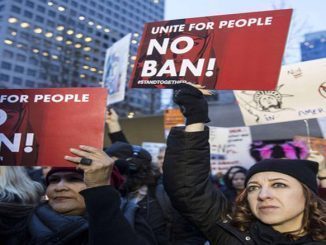
Egypt’s threat to ‘flood’ Italy with migrants – following Rome’s embargo on Egypt for F16 spare parts – could be one that al-Sisi lives to regret, says Robert Springborg.
Robert Springborg, a non-resident Research Fellow of the Italian Institute of International Affairs, said that the Egyptian government responded by declaring it would reconsider cooperation with Italy to combat illegal migration following the Italian parliament’s decision to halt the export of F-16 spare parts to Egypt in late June with the “Regeni Resolution” – named after the Italian student tortured to death in Cairo in January, as reported by Al-Arabi al-Jadeed.
Since the 1990s, Italy and the EU’s attempt strategy to curb the human trafficking and illegal migration to Europe has become one of the main priorities in their relations with Cairo. However, the need to stop the flow of illegal migrants from Egypt has dramatically increased after the Arab Spring, particularly after the military coup in 2013.
It is true that Europe considers illegal migration a top priority in its relation with Egypt, but was Egypt’s role to curb illegal migration to Europe effective enough to be used as a “threatening card” against Italy?
According to past experiences, Egypt’s implied threat to flood Europe with illegal migrants is not an idle one.
In fact, the US State Department’s Trafficking in Persons Report downgraded Egypt’s global ranking in 2015 and this year’s report placed it on its Watch List due to the Cairo government’s failure to take appropriate measures and a surge of illegal migrants from Egypt.
Moreover, the head of Frontex – the EU’s border protection agency – expressed concern that a rising proportion of migrants seeking entry to Europe was coming from Egypt in June.
Egypt was the source of a minimum of 70,000 illegal migrants in the first half of 2016. Italy receives almost 40% of Egypt’s legal migrants to Europe – far and away the highest proportion.
But the further cause for growing concern has been “Egypt’s key role in supporting General Khalifa Haftar’s forces in eastern Libya, from the coast of which a large number of migrants depart for Europe,” according to Al-Arabi al-Jadeed. Egypt’s ability to facilitate or stem that flow gives added meaning to the threat to flood Europe with migrants.
Since 2011 the proportion of unaccompanied children among Egyptian irregular migrants to Europe has – according to the International Organization for Migration – “been remarkably high”.
In 2014, they accounted for about one-half of all irregular Egyptian migrants arriving in Italy, and in 2015 they were more than from any other country. The State Department’s Trafficking in Persons Report cited Egypt as a “source, transit, and destination country for women and children trafficked for the purposes of forced labor and sexual exploitation”.
In fact, the Italian mafia is heavily involved in this trafficking, which feeds into its networks of prostitution, pedophile rings, and slave-like employment in South Italy.
Robert Springborg believes that the threat of al-Sisi’s government to flow Italy with migrants – which is similar to Muammar al-Qaddafi’s threat to do the same before he was overthrown – is, in light of the composition of irregular migrants already going there, more akin to the Ayatollah Khomeini’s strategy of recruiting the poor and downtrodden – especially children – into the Basiji militias.
The Basiji militias were recruited to assist the Revolutionary Guard Corps in imposing control and then they were deployed to the front lines in the war against Iraq during the 1980s. Largely untrained, and even unarmed, these basiji were sent forward in human waves, being mowed down in their thousands.
Regardless to the historical similarities, it is clear that al- Sisi cares little about the welfare of his people.” Those most vulnerable among them are to be used as cannon fodder, in this case in an effort to defend his security services from the consequences of being proven to be involved in the killing of Giulio Regeni. So one crime is to be covered up by another, in true mafia fashion,” said Robert Springborg.
On the other hand, Robert Springborg pointed that Cairo’s threat to send waves of its people to Italy is “counterproductive for its own interests.” Out of all European leaders, Italy’s Prime Minister Matteo Renzi was the most supportive and outspoken European official in defense of the Sisi government. But, Regeni’s case has forced him to back away from that support. Therefore, the threat to flood his country would make any chances for reconciliation with Cairo now virtually impossible given the political sensitivity regarding the migration issue in Italy.
In the same context, rising more bilateral tensions by using the “illegal migrants threat” would harm Egypt’s energy future which depends heavily on ENI-Italy’s dominant oil company and the developer of the newly discovered Zohr gas field off the Egyptian coast.
In fact, Egypt has withdrawn and tried to cool down the crisis from as the possible awareness in Cairo of the downsides of the ill-considered. On 18 July, a special parliamentary committee – headed by a former general close to al-Sisi – recommended a “calm parliamentary” response to the spare parts embargo instead of “confrontational diplomacy”, said Robert Springborg.
However, Springborg believes that repairing the damage done to Egypt’s reputation – to become, once again, a reliable partner of a leading EU country – through threatening to flood it with its unwanted women and children – “will not be easy or quick.” He added, “Al-Qaddafi was ridiculed for threatening to employ that same tactic. The fate of the Iranian basiji is one of the darkest blotches on the mixed reputation of Ayatollah Khomeini. ”
In addition to the effect of the threat to Egypt’s reputation, the ill-considered attempt revealed so clearly “the contempt al-Sisi’s had not only for the global order and the vital relationship with Europe but also for his own people.”



